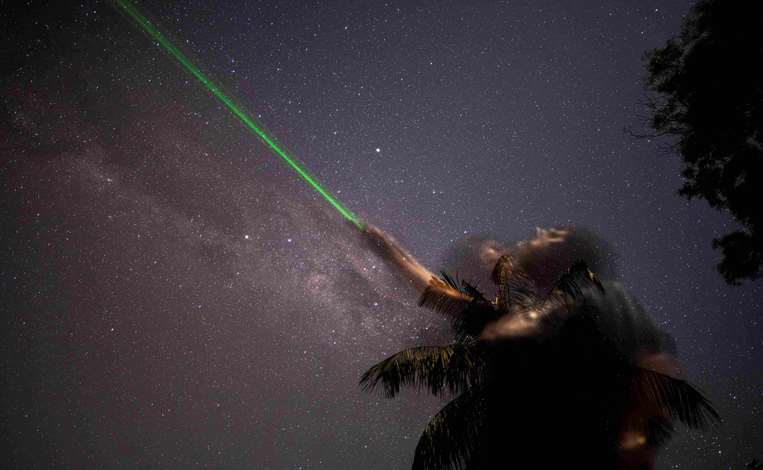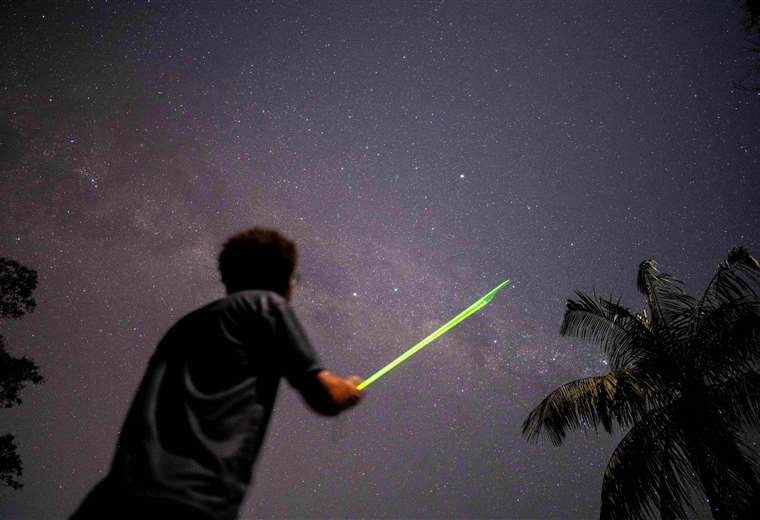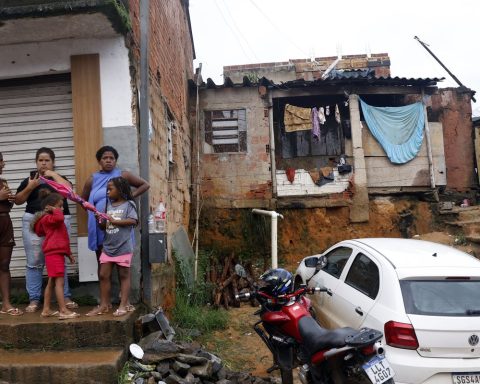July 12, 2023, 2:10 PM
July 12, 2023, 2:10 PM
In a remote town in the interior of the state of Rio de Janeiro, the young Pedro Froes is fascinated by what he sees through the telescope: orange and bluish tones of the Jewel Box, an agglomeration of stars imperceptible to the naked eye. “It’s unbelievable,” he gloats himself.
Like him, more and more curious about astronomy are visiting the Desengano State Park, 170 km northeast of the city of Rio, the first “dark sky park” in Latin America recognized by the International Dark Sky Association (IDA), for its little light pollution.
“From here you can see 3,000 stars a year with the naked eye, without the help of any instrument. In cities like Rio or Sao Paulo, at most, you can see 200 a year,” explains astronomer Daniel Mello, from the Valongo Observatory of the Federal University of Rio de Janeiro (UFRJ).
This is because the park shelters more than 21,000 hectares of forest preserved Atlantic, and is surrounded by mountains, 120 km from the nearest port city. There the contamination by artificial light -that halo that surrounds the cities- is minimal.
In the front garden of the park’s headquarters, located in the small town of Santa Maria Madalena, Mello conducts a public night observation session in front of about twenty people, showing the constellations Scorpio, Centauro and Cruz del Sur with a laser.
Even on a moonlit night, the brilliance of the Milky Way can be seen clearly. Two telescopes reveal more distant stars.
The evening is part of the scientific research and dissemination project “Astrotourism in Brazilian Parks”, created by Mello and a group of specialists in tourism, ecology and photography.
“I always liked admiring the sky, but I rarely had the opportunity to see it like here. In my city it is not possible to see so many stars at the same time,” says Froes, a 22-year-old biologist who traveled from Niterói, the metropolitan region of Rio de Janeiro. Janeiro, to contemplate the firmament.
It is estimated that 80% of Humanity lives under skies flooded with artificial light, whose excess disturbs the reproduction of species, disorients migratory birds and fatigues insects, among other consequences.
For humans, in addition to preventing the contemplation of the sky, it interferes with the “circadian rhythm” of wakefulness-sleep, which regulates biological and hormonal functions.
– Dark sky, chain benefits –
Parque do Desengano, founded in 1970 and managed by the Rio State Environmental Institute (INEA), was recognized in 2021 by the International Dark-Sky Association (IDA), one of the specialized organizations that grants this type of recognition. .
The other Latin American site recognized by IDA is the Elqui Valley, in the Chilean Atacama desert, but in the “sanctuary” category, due to its nature as an isolated place.
While in the United States, Europe and Chile “astrotourism” has been more developed, in Brazil, known worldwide for its beaches and its tropical jungle, it is still in its infancy.
But the bucolic Santa Maria Madalena, with 10,000 inhabitants, You are starting to see changes.
The reservations of astrotourists have increased, “Especially in the last six months,” retired professor Nelson Saraiva, who runs one of the few inns in the area with his wife, told AFP.
The population lives mainly from agriculture, public administration, and more recently from ecotourism, with rural walks, hiking, climbing and adventure cycling.
Now the proposals linked to the firmament are multiplying, such as the contemplation sessions led by Mello, monthly meetings that combine astronomical observation with gastronomy and even a Festival of the Stars organized by the Municipality and local businessmen.
Saraiva believes that one day it can become the main attraction of the city.

– Ecological balance –
Preserving the sky doesn’t just help the economy.
By being certified by the IDA, the park must promote environmental education activities and replace its lighting with low-impact lighting, among other requirements, explains Carlota Enrici, the park’s coordinator of Scientific Research and Environmental Education.
“We have an enormous diversity of birds, mammals, reptiles, which are here only because the place is preserved (…) reducing light pollution keeps the ecosystem in balance,” he adds.
Mello sees the 2021 “title” as “a gateway” for other Brazilian parks with similar potential to obtain the same certificate and develop astrotourism, such as Chapada dos Veadeiros (central-west), which already offers some activities of the type .
Is about “rescue people’s contact with the starry sky and with nature”, he concludes.













